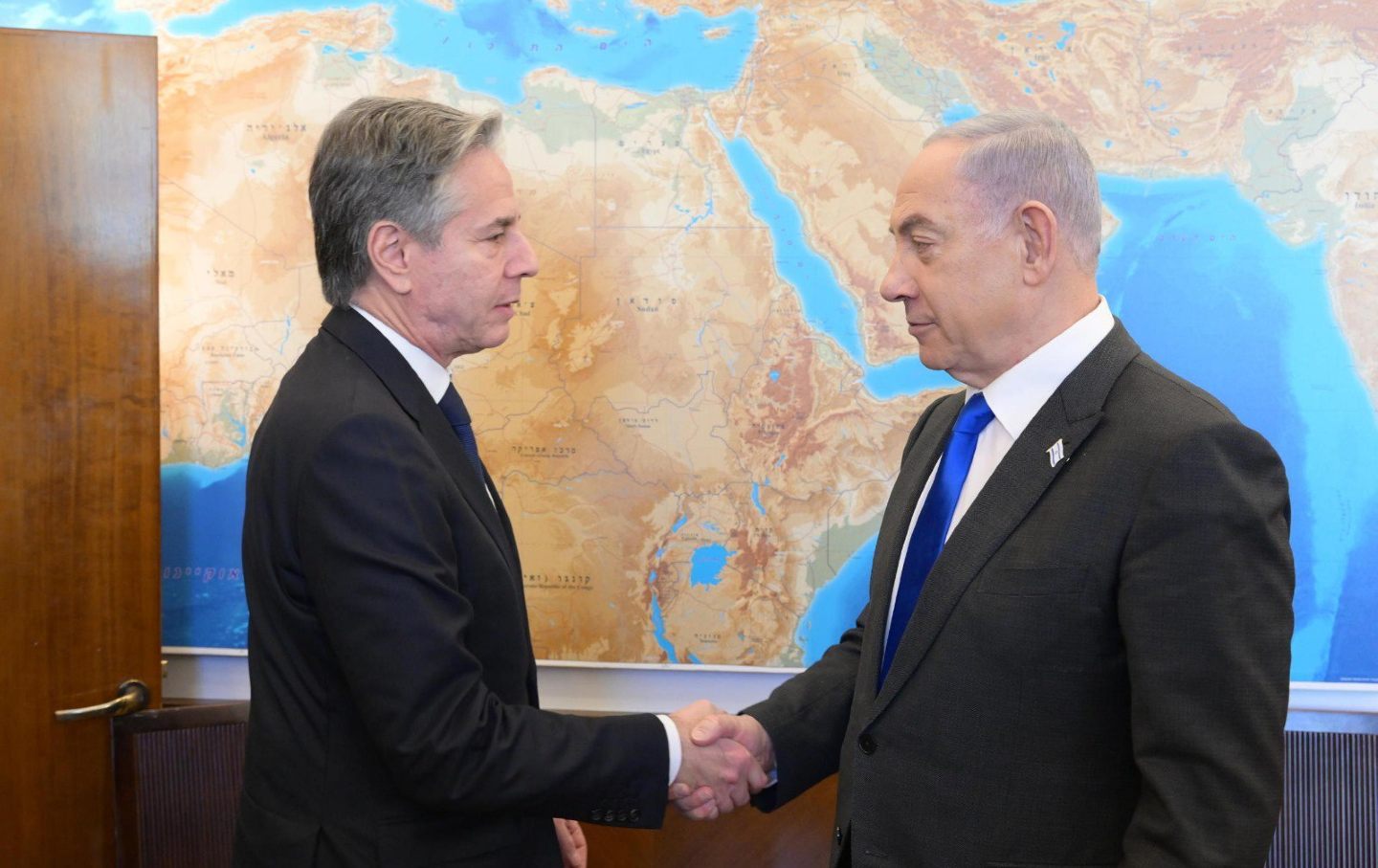World
The Year the World Witnessed a Genocide
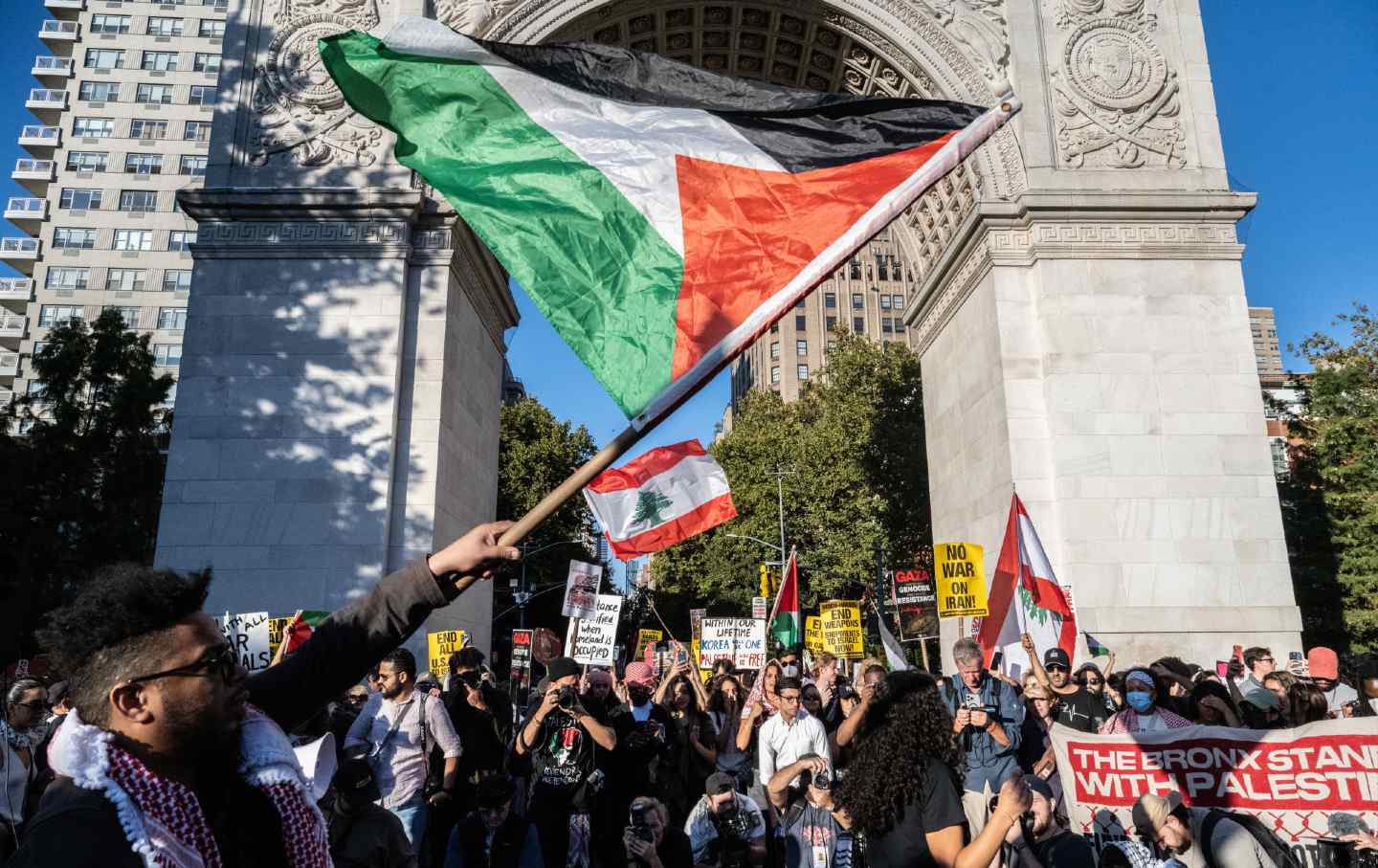
Even as the world’s leaders aided and abetted Israel’s slaughter in Gaza, an unrelenting global public waged a ferocious battle for basic decency.
Protesters rally in support of Gaza and Lebanon in Washington Square Parl on October 5, 2024 in New York City.
(Stephanie Keith / Getty Images)
It is Day 367* of genocide. I have grown accustomed to marking my days this way—in the horrifying knowledge that, today, the industrial-scale destruction of Palestinians in the Gaza Strip continues, and with the infallible determination that, today, it must end.
I first took up this practice on Day 6, when it emerged that the only nuclear power in the Middle East had dropped 6,000 bombs in less than a week on a besieged population comprised mostly of refugees.
Even before this revelation, we knew that this attack was unprecedented. We knew it, even though Israel’s settler colonization of Palestine had established a structure of elimination that had continued for nearly eight decades; even though it had engaged in major offensives during the 1948 War, the 1967 War, and the 1982 invasion of Lebanon; even though it had circumscribed Gaza with a militarized fence since 1993, imposed a comprehensive siege since 2007, and initiated a campaign of systematic large scale offensives since 2008. We knew this was different in scale and in kind. Driven by a fanatic lust for revenge, together with the cool, calculated opportunism to complete the Nakba, Israel, backed by a global superpower, unleashed a merciless campaign intended to punish and destroy a people who refused to disappear.
We knew all this by Day 6—and then, toward midnight on that day, the Israeli military ordered 1.1 million Palestinians to move south past the Wadi Gaza line. By day 7, Holocaust Studies scholar Raz Segal was calling this “a textbook case of genocide.” On Day 8, 800 legal scholars sounded a similar alarm. On Day 10, the Al Ahli Hospital was bombed. On Day 11, 400 Jewish activists occupied the Capitol Building, while on Day 12, United Nations experts warned of genocide.
On Day 27, activists in Oakland, California prevented a boat from docking that they had been told was carrying munitions headed to Israel. On Day 28, 300,000 protesters demanded an immediate ceasefire in Washington, DC. On Day 31, activists in Tacoma, Washington, once again prevented a boat carrying munitions from docking. On Day 33, three Palestinian human rights organizations submitted a petition to the International Criminal Court charging Israel with genocide. On Day 35, nearly half a million protesters demanded ceasefire in London, and on Day 37, the Center for Constitutional Rights sued the US President as well as its Secretary of State and Defense to end their complicity in genocide.
All of this happened before the first and only ceasefire, which facilitated the diplomatic exchange of captives between Days 48 and 54.
Four weeks later, on Day 83, the Republic of South Africa submitted its petition charging Israel with breach of the Genocide Convention. The submission rode a wave of global upheaval by people who did not need a court of law to name what they were witnessing in real time. These people did not need legal precedents to condemn the destruction of 60 percent of Gaza’s residential buildings, the leveling of all major universities, the incapacitation of 36 hospitals, and the targeting of a 1,400-year-old mosque and the third oldest church in the world. They did not need a judicial panel to conclude that killing an average of 247 Palestinians a day, including two mothers every hour, and the amputation of one or more limbs of ten children a day was not the outcome of grotesque urban combat. Far too many of the UN’s member states, however, did need the its principal judicial organ to remind them of their obligations and duties, to compel them to restrain a genocidal state and its sponsors.
On day 111, 15 of the International Court of Justice’s 17 judges found it plausible that Israel was committing genocide. They agreed that the law forbade what the salt of this earth condemned: that the destruction of a people—whether to achieve a political goal or to expand territorial holdings or to assert uncontested settler sovereignty, or for any reason whatsoever—is never okay. But the resounding decision was met by the deflating reality that no enforcement mechanism exists in the international system—apart, that is, from the UN Security Council, whose five permanent members wield a veto power that could, and does, upend the will of the entire world.
Still, an unrelenting global public continued a ferocious battle for basic decency. If international institutions could not be properly mobilized to stop a genocide, national ones would be. On Day 121, several Danish pension funds divested from Israeli companies; on Day 122, Belgium’s government of Wallonia suspended two arms export licenses; on Day 129, a Dutch appeals court prohibited the transfer of all F-35 jet parts; and on Day 246, Colombia imposed an energy embargo. In England and the US, activists bypassed government all together and directly shut down Elbit Factories, Israel’s largest private arms manufacturer, in Tamworth, Oldham, and Cambridge.
On Day 193, American university students, who had been protesting their institutions’ complicity in genocide, grabbed national attention when Columbia students set up an encampment. By Day 209, over 150 university encampments had been erected globally. The students remained undeterred as their own schools brutally punished them for daring to oppose the worst atrocities that could be committed by states—and for embracing the potential of organized groups of people to change the course of history. Student journalists heroically filled a void left gaping by the industry’s professional class, and graduate students produced new knowledge on the Nakba that elite law journals tried and failed to censor. By Day 228, communities across the United States successfully passed 175 municipal ceasefire resolutions, and on Day 235,100,000 people formed a human red line around the White House in place of the one that the Biden administration threatened but ultimately refused to enforce around the last standing city in Gaza.
All of this is but a fraction of the labor that has been done globally to stop genocide—to say nothing of the indomitable front waged by Palestinians in Gaza without which solidarity would have no meaning. But none of it has been enough to end genocide.
As of today, Day 366, nearly 42,000 Palestinians—that we know of—have been killed, including over 20,000 children buried, disappeared, and detained. The names of those under the age of one fill the first 14 pages of a 649-page document attempting to memorialize the slain. So far, 902 entire families have been wiped off the civil registry. As a result of a deliberate program of starvation, disease, and the destruction of the conditions necessary for survival, The Lancet estimates that, by mid-June, the true death toll was 186,000 and will be as high as 335,500 by the end of the year.
Popular
“swipe left below to view more authors”Swipe →
“We’re running out of soil to bury our dead,” wrote journalist Hossam Shabat at the end of September. Mindful of an apathetic audience, Hind Khoudary entreats, “Wake up world, our children are being slaughtered,” while 11-year-old Mahmoud explains:
My wish
Is to travel
To get to a hospital
And get prosthetic arms.
So I can hold a ball with my hands
So I can play.
So I can write.
So I can eat.
And yet, even now, Israel is far from done. On Day 355, it escalated its campaign with a terrorist attack in Lebanon that turned humans into walking bombs. It continued by indiscriminately bombing residential neighborhoods using the same racist “human shield” trope that should have been buried beneath the 26 million tons of rubble and debris that was once Gaza’s civilian infrastructure. Following Iran’s missile strikes on Israel on Day 359, the risk of a regional and, potentially, a global war hovers in the shrinking distance.
Today, Day 367, it is almost impossible not to despair. “Catastrophe is not in the future, the Nakba is not the past,” historian Sherene Seikaly tells us. We are not on the precipice of apocalypse; we have been building life in its folds.
And yet, our collective labor has left an indelible impact: The United States and Israel are isolated globally, their influence has been reduced to the use of naked coercive force devoid of any legal or ethical persuasion. Their boundless destruction is matched only by their moral bankruptcy, now plain for those who want to see, to see.
In Octavia Butler’s treatise on building the world anew, she reminds us, “All that you touch, you change. All that you change, changes you.” We have made change—and we are also forever changed: Our eyes wide open, primed to distrust media, social and political authorities bullying us into become walking zombies obsessed with pop culture distractions, wide open to the fact imperialism shapes the minute details of our daily lives, to the fact that Zionism is racism and that a free Palestine has the potential to set us all free.
We must recognize our despair, and name it, to prevent its bottomless darkness from transforming our activist spaces into toxic places of harm. We must remember that surrender is not an option and that history is more than an epoch. We must turn to Palestinians for our greatest guidance and inspiration—they, who after 76 years, have been pummeled more than once, and who every time have risen like a phoenix to reconstitute themselves and continue forging a future with the fire of the most difficult sacrifice and the surety of collective victory. A genocide has threatened to erase Palestine, but it has ensured that Palestine now lives in each one of us, immortal. Nothing, and none of us, will be the same again.
Can we count on you?
In the coming election, the fate of our democracy and fundamental civil rights are on the ballot. The conservative architects of Project 2025 are scheming to institutionalize Donald Trump’s authoritarian vision across all levels of government if he should win.
We’ve already seen events that fill us with both dread and cautious optimism—throughout it all, The Nation has been a bulwark against misinformation and an advocate for bold, principled perspectives. Our dedicated writers have sat down with Kamala Harris and Bernie Sanders for interviews, unpacked the shallow right-wing populist appeals of J.D. Vance, and debated the pathway for a Democratic victory in November.
Stories like these and the one you just read are vital at this critical juncture in our country’s history. Now more than ever, we need clear-eyed and deeply reported independent journalism to make sense of the headlines and sort fact from fiction. Donate today and join our 160-year legacy of speaking truth to power and uplifting the voices of grassroots advocates.
Throughout 2024 and what is likely the defining election of our lifetimes, we need your support to continue publishing the insightful journalism you rely on.
Thank you,
The Editors of The Nation
More from The Nation
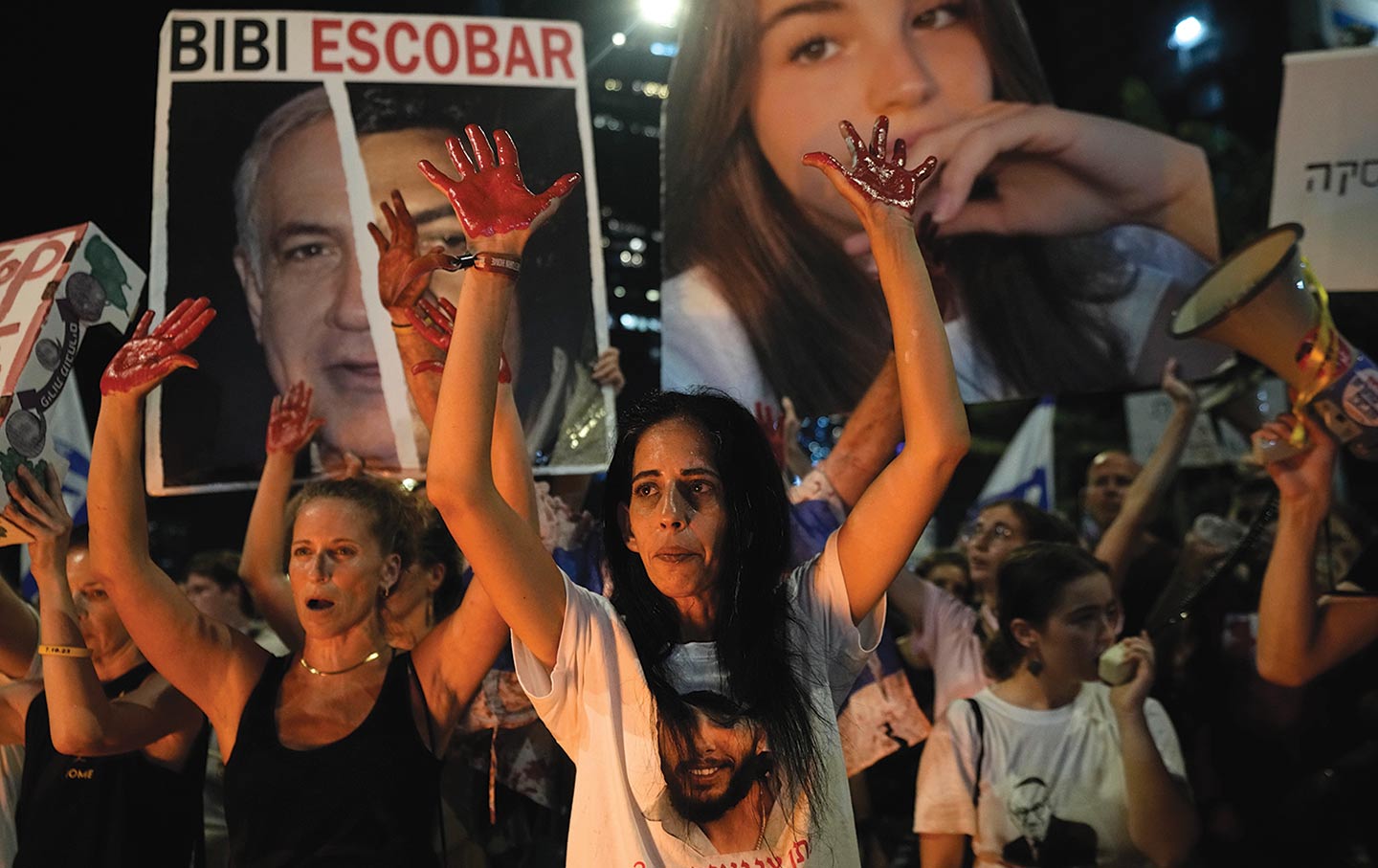
As Israel approached the one-year anniversary of October 7, it seemed to be at a crossroads, with two powerful blocs pulling in two different directions.
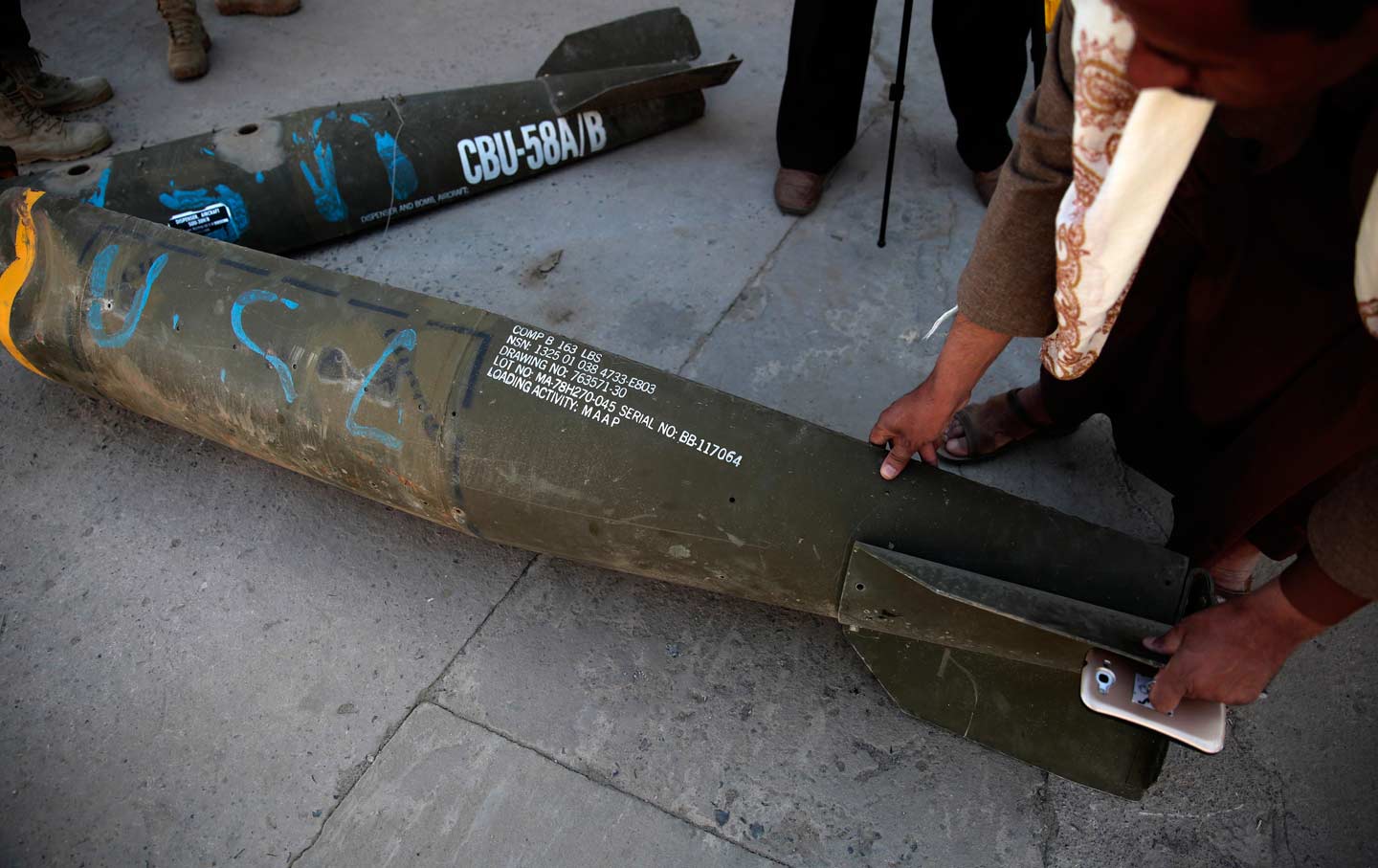
Unexploded ordnance makes the terror of war linger after the wars themselves are in the history books.
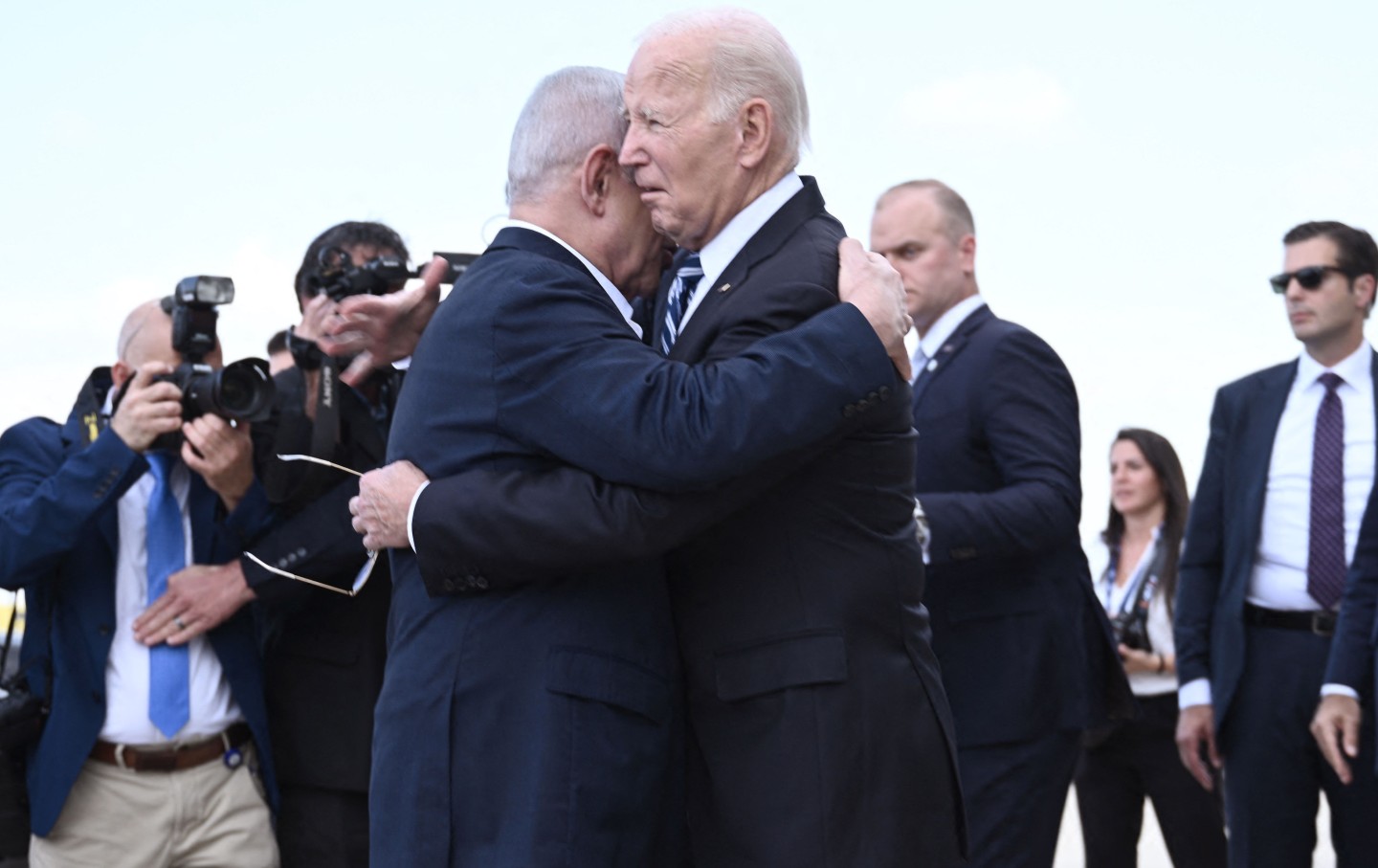
Washington’s efforts in the Middle East have been profoundly undermined by its breathtaking hypocrisy.


